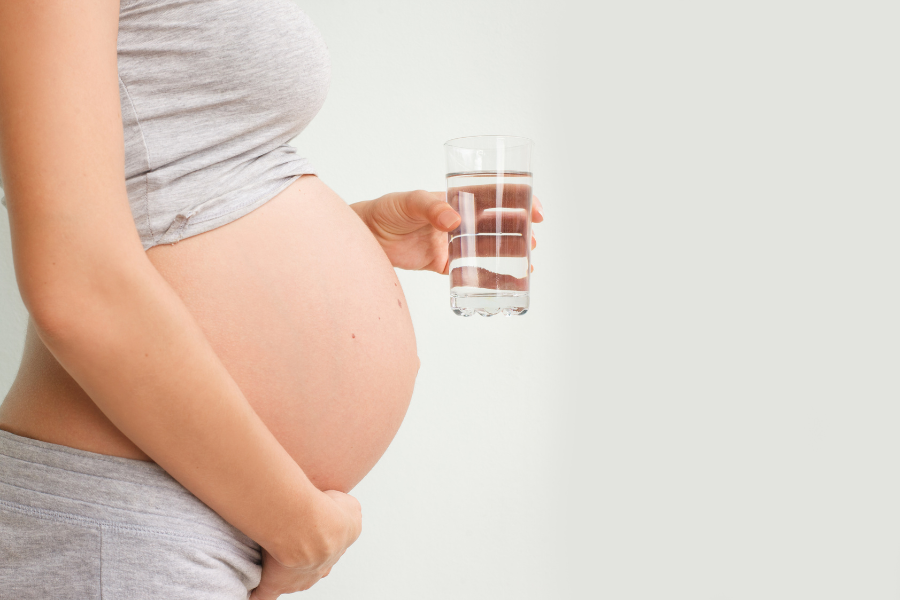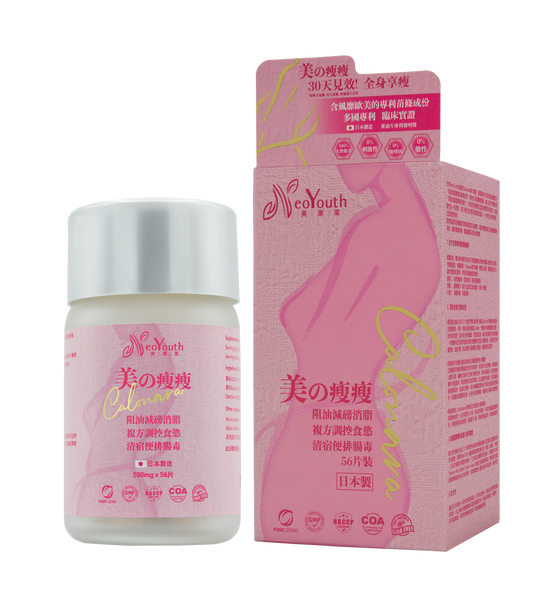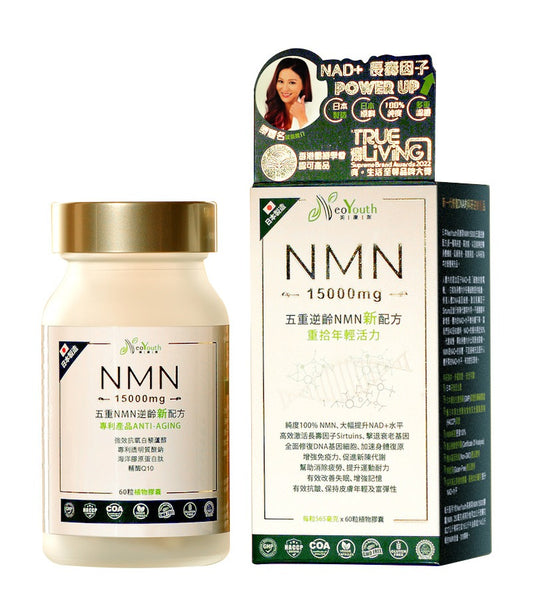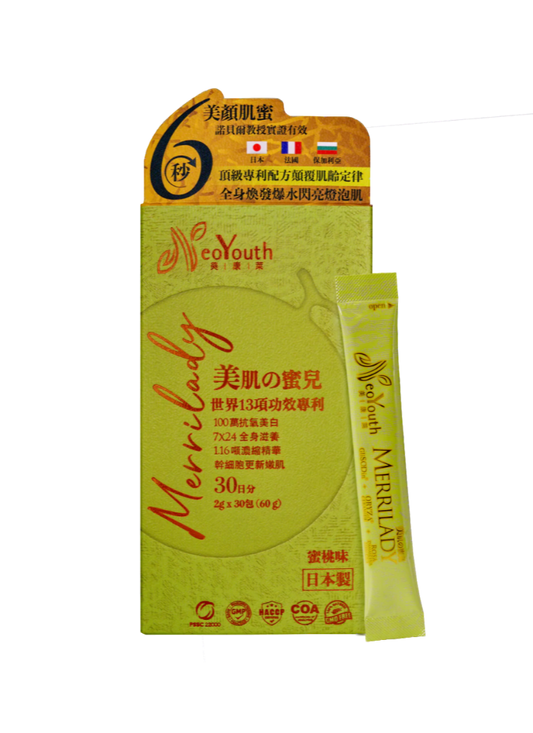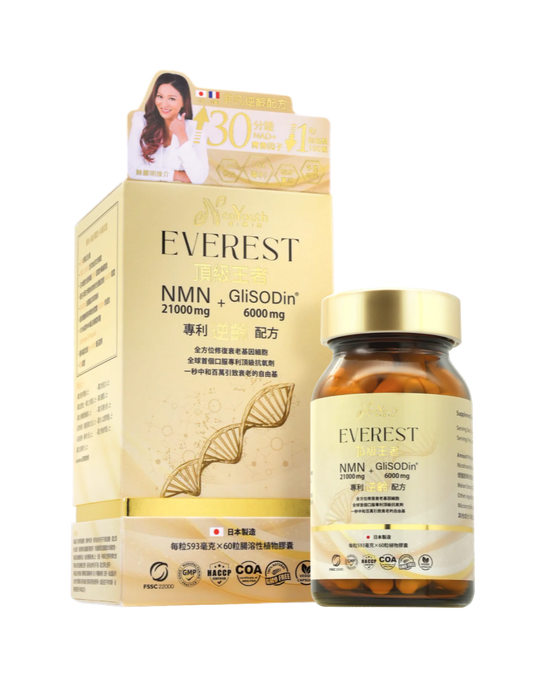Many parents prepare for pregnancy before welcoming a new life, but with the increasing prevalence of late marriages in recent years, the age of childbirth has also risen. Multiple studies show that older mothers have a higher chance of experiencing fetal malformations. So what should you prepare before pregnancy? NeoYouth will share with you the physiological challenges older mothers face and pre-conception preparations.
Hong Kong women tend to have an older age at first pregnancy. Advanced maternal age carries the following risks.
According to the definition of the International Federation of Gynecology and Obstetrics (FIGO), women who give birth for the first time at the age of 35 or older are considered advanced maternal age. [1] According to statistics from the Hong Kong government, the median age of first-time mothers has been rising continuously from 1991 to 2021, from 28.1 years old in 1991 to 32.6 years old in 2021. [2] As women get older, it becomes more difficult for them to get pregnant. If they do not prepare for pregnancy, the fetus is at great risk of developing the following abnormalities.
- Miscarriage: The causes of miscarriage are related to chromosomal abnormalities in the parents. Another situation is a balanced chromosomal translocation, which is caused by two chromosomes breaking and exchanging and arranging themselves, which also increases the risk of miscarriage.
- Down syndrome (Trisomy 21): As the body ages, cells become less active, which can lead to nondisjunction in the embryo. Additionally, older men's sperm may have an extra or missing chromosome; the combination of these two factors increases the risk of the fetus having Down syndrome.
- Edwards syndrome (Trisomy 18): Chromosomal nondisjunction can also cause Edwards syndrome. Edwards syndrome affects embryonic development, causing it to grow slowly. The mother may also fail to provide sufficient nutrition for the fetus's development, leading to congenital defects such as congenital heart disease, incomplete physical development (such as small head, large head, or malformation), or even stillbirth.
- Gestational diabetes: If a mother has insulin secretion disorders during pregnancy, her blood sugar level will gradually rise. If the body is in a state of high blood sugar for a long time, it will eventually develop into gestational diabetes. The fetus is also more likely to have congenital malformations, stillbirth, and macrosomia.
Three pre-pregnancy conditioning and preparation measures to reduce the risks of pregnancy at an advanced age
Due to practical constraints, many newlywed women are unable to give birth during their ideal reproductive years. To reduce the risks of advanced maternal age pregnancy, it is recommended to prepare for pregnancy beforehand and improve physical condition. The following methods can be used to reduce the risks of advanced maternal age pregnancy.
Supplementing nutrients
To reduce the risks for older mothers and ensure healthy fetal development, it is recommended that women prepare their bodies through diet before pregnancy, supplementing with nutrients such as folic acid, iron, calcium, and iodine through a balanced diet. Folic acid helps produce healthy red blood cells, DNA, and RNA, and promotes the development of sperm and eggs. Adequate folic acid intake can also reduce the risk of neural tube defects in the fetus. Common foods containing folic acid include dark green vegetables, fruits, and liver. Women can start taking 400 micrograms of folic acid daily three months before trying to conceive to increase their chances of getting pregnant. In addition to folic acid, older women should also pay attention to calcium supplementation to prevent bone loss during pregnancy and to help fetal bone development. It is recommended to eat more calcium-rich foods during the preconception period, consuming 1,000 to 1,300 milligrams daily from milk, cheese, and yogurt. Furthermore, iron is a major component in the production of heme and myoglobin, which is crucial for both the woman's health and fetal development. Consuming approximately 27 mg of iron daily from meat, liver, and dark green vegetables can provide women with a strong foundation for bodily functions and ensure adequate nutrition for the fetus. Iodine is essential for fetal brain development, so women planning pregnancy are advised to consume iodine-rich foods such as kelp, seaweed, algae, or iodized salt.
Establish good living habits
Before trying to conceive, couples are advised to establish healthy lifestyle habits to avoid affecting fertility and fetal development, and to reduce the risks associated with advanced maternal age. Before pregnancy, couples need to change some unhealthy habits, such as staying up late, drinking alcohol, and smoking. Insufficient sleep can affect female hormone secretion, menstrual cycle regularity, and egg quality, as well as sperm count and motility. Furthermore, alcohol increases estrogen levels in women, thereby reducing follicle-stimulating hormone (FSH), affecting egg development and directly impacting embryonic development. Nicotine in cigarettes reduces sperm concentration and motility, increases the risk of sperm DNA fragmentation, and can cause premature ovarian failure in women. It is recommended to start by quitting smoking and drinking, improving lifestyle habits, and preparing the body before trying to conceive.
Preconception health check
Preconception health checkups are crucial for couples planning a pregnancy, helping to assess their overall health and ensure they are in optimal condition for conception. Typical preconception tests include blood and urine tests, and screening for infectious diseases. Semen analysis and Pap smears may also be chosen based on individual circumstances. These tests help understand reproductive health, assess ovarian function, and evaluate sperm quality and quantity, thereby increasing the chances of conception and a successful pregnancy. In addition, genetic screening may be conducted to identify potential risks to the fetus. Doctors will also provide advice on diet, exercise, and other lifestyle factors during pregnancy to further enhance the chances of conception.
Adequate pre-conception preparation with NMN pre-conception conditioning revitalizes cells.
Whether a fetus can be born smoothly and grow healthily often depends on the parents' cytoquality. Therefore, in addition to pre-pregnancy checkups, pre-pregnancy conditioning is also very important for expectant parents before planning to have a child.
In recent years, NMN has received much attention in health products, and its anti-aging effects are more popular among the public. NMN has the effect of activating the longevity factor NAD+ and the longevity gene SIRT1 in the body, which makes mitochondria produce more energy and promotes cell repair in the body, so as to maintain youthful vitality. According to the research of Dr. Lam Ka Leung, a PhD in Medical Science from Hong Kong Polytechnic University, NMN helps to promote the activity of eggs,[3] keeping them at their peak, allowing high-quality eggs to combine with sperm, thereby increasing the chances of pregnancy and reducing the risk of pregnancy at an advanced age.
While we can obtain NMN from natural foods, the amount is negligible. Approximately 16 kilograms of avocado contains only 250 milligrams of NMN. Therefore, obtaining NMN through a regular diet is insufficient to repair and stimulate cell growth. Older individuals planning to conceive can take NeoYouth NMN15000+12000Ex as pre-conception preparation to improve their physical condition. Each box contains 60 capsules, each containing 250 milligrams of NMN. This helps comprehensively increase NAD+ levels in the body, promotes cell repair, improves sperm and egg quality, increases the chances of conception for older individuals, reduces the impact of advanced maternal age childbirth, and helps prevent fetal developmental abnormalities, thus helping older individuals make comprehensive pre-conception preparations.
References:
1. https://zenithmc.com.hk/高龄产妇/
2. http://www.hkcna.hk/docDetail.jsp?id=100448145&channel=4657
3. https://www.master-insight.com/孕及备孕女的健康秒法/
4. https://haveababy.tw/posts/pregnancy-04
5. https://www.healthyd.com/articles/expert-blog/health_products_how_to_take_the_supplement_nutritional_supplements_nmn-Dr.Su_Ziqian
6. https://www.otandp.com/zh-hk/blog/what is non-invasive prenatal testing
7. https://www.healthgene.com.hk/product/nipt_non-invasive fetal chromosomal abnormality testing/
8. https://www.hkiphc.com/btpc-mf-pm3/?gclid=Cj0KCQiA5rGuBhCnARIsAN11vgS4oeeSI8gerntT3jWBp6ii-Oi2BcgjolWdPqxi00YsAAjSgUDPtp8aAq3lEALw_wcB
9. https://zenithmc.com.hk/services/obstetrics/prenatal checkups/
10. https://helloyishi.com.tw/pregnancy/pregnancy-progression/pregnancy-problems/what-is-gestational-diabetes/
11. https://www.healthyd.com/articles/body/nmn与婴儿优生学-助启人间子鸡子及卵细胞-孕
12. https://www31.ha.org.hk/hkch/Pages/Patients/Services/CGSU/docs/Recurrent_Miscarriage_Chi.pdf
13. https://www.nnbshop.com/blogs/好孕研究室/124026
14. https://www.elevit.com.hk/planning/Diet-and-getting-pregnant

